My vision of the future as an international civil servant came to light through the realities of Cote d’Ivoire
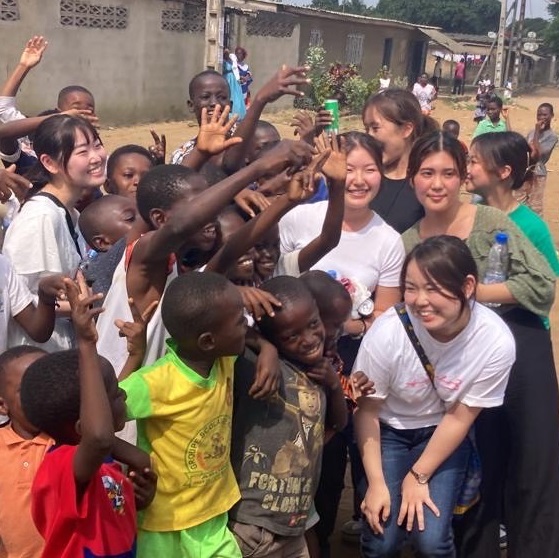
Every year, many Sophia University students study abroad in countries all over the world outside of Japan. How did they manage to find their way through the differences in languages, cultures, and lifestyles? Here are some voices of students who studied abroad.
-What made you decide to study abroad?
As I deepened my study of Africa in university lectures, I began to feel that I wanted to actually experience modern Africa with my own eyes and understand the local situation. Since I was in my fourth year at the time of my study in Africa, I wanted to reevaluate what I had learned and considered during my three years of studies at the university, as well as to grasp what kind of business form could enable both Japan and Africa to mutually develop, and to consider a specific career for myself in the future.
-How did you choose your study abroad destination (country/university)?
I chose the program “Study in Africa”, which allowed me to go to an African country. I decided to participate in the program not only because Cote d’Ivoire was the host country for the spring semester of 2023, but also because I wanted to visit Abidjan, a city that represents West Africa, where the headquarters of the African Development Bank is located, and where Toyota Tsusho Corporation, a leading Japanese company in Africa, is based.
-What did you do to prepare for your study abroad and what do you wish you had done?
This was my first trip to the African continent, and I was concerned about my health and how social instability might affect my trip. Before my departure, I read JETRO’s press releases and publications, and also gathered information released by international organizations and development banks so that my studies there can be approached from business and political science perspectives. What I wish I had done was to improve my fluency in French; when I visited a JICA project site, I wanted to speak with local children, but I could not understand their French and had to use gestures to communicate with them.
-What was the atmosphere like at the university and among the students?
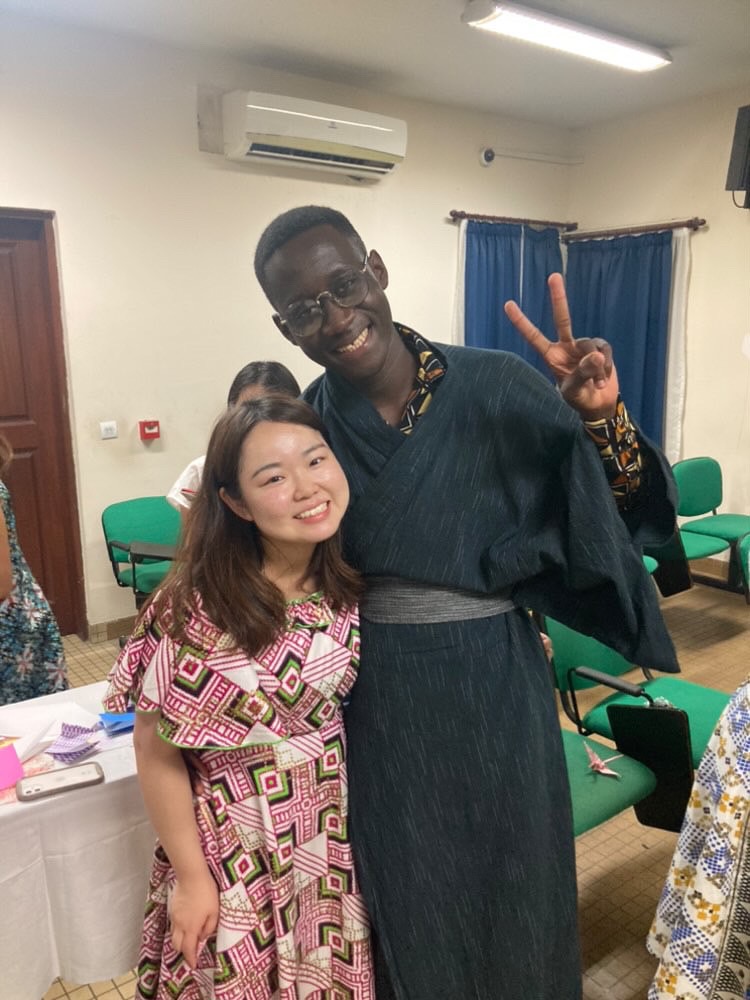
I was impressed by the welcoming atmosphere, with everyone being very cheerful. There was a time when we danced together with loud music playing in the halls at the university, and I was astonished by the liberal culture and the brightness of the students, which I have never experienced in Japan. During the program, about 8 students accompanied me every day to the sites I visited, and they showed me around those sites and toured them with me. I was able to make friends with the CERAP students during bus rides and over meals.
-What is the most important thing you have done outside of your studies?
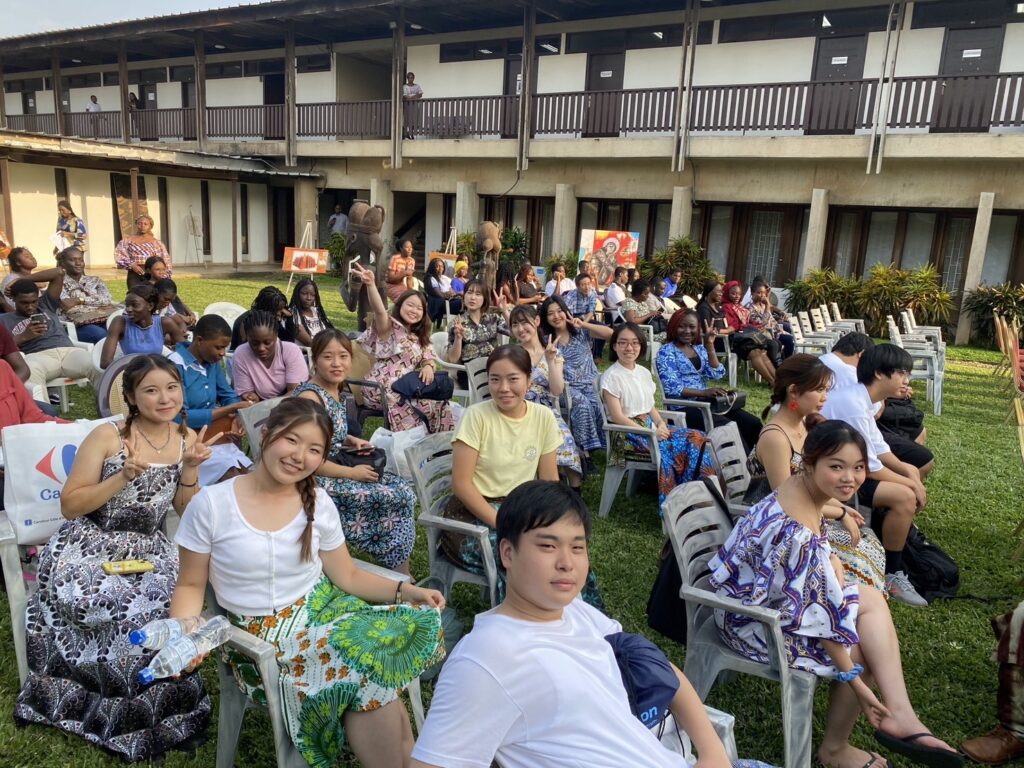
I valued interaction with CERAP students the most. Even though we were both students, I was concerned that I would sometimes ask inappropriate questions whom I met for the first time due to some cultural discrepancies, so I wanted to get to know them well first and then have an in-depth conversation. As a result, my interaction with the CERAP students became one of the most delightful and memorable moments in the program.
-What do you find appealing about your study abroad destination, or what are some new discoveries you have made?
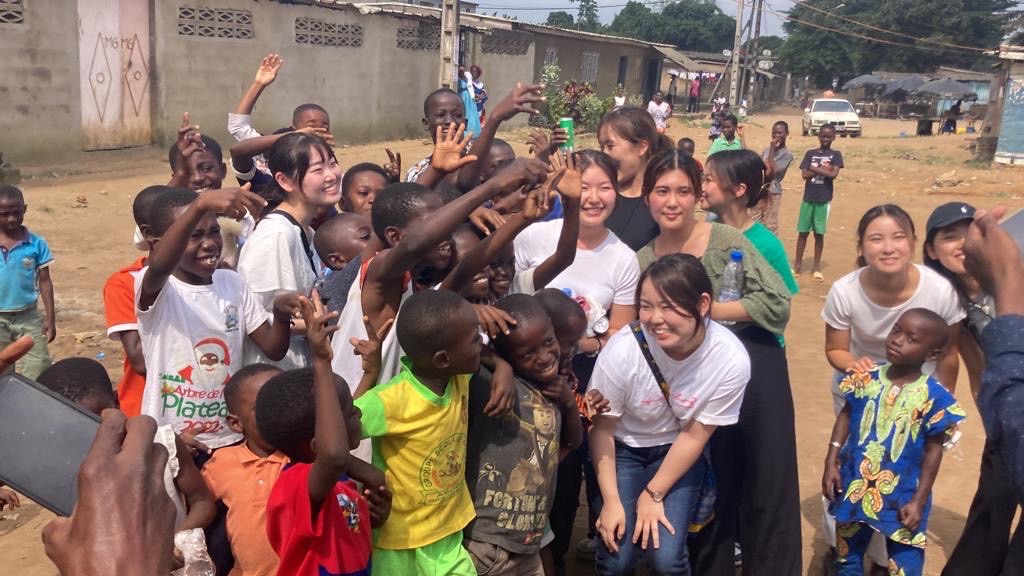
What I appreciated the most was the warmth and welcoming nature of the people of Côte d’Ivoire. The country is safe and easy to live in. There are not many Asians living there, and even though I was a total alien, they welcomed me with open arms rather than questioning my presence. I was also very happy that the food was so tasty. The staple food in Cote d’Ivoire is rice, wheat dishes such as pasta and bread, cassava-based dishes such as Acheke, couscous, potatoes, etc., similar to Asian cuisine, and I was grateful for its variety.
-What was the most impressive or striking experience for you?
Even though the distance from Accra to Abidjan is very close (about the distance between Osaka and Tokyo), the languages spoken were completely different. That may have been the moment I sensed the history of colonial rule the most during my visit. Cote d’Ivoire is a French-speaking country, so even though the business climate is good, I felt that such linguistic and cultural diversity could be a source of apprehension for foreign companies expanding their business in Cote d’Ivoire. I felt the complexity of the fact that only such distance, a few hundred kilometers between these two locations has affected the condition of the past few decades.
-What were some of the issues or challenges you faced during your study abroad? How did you overcome them?
During my stay there, I had a fever and had to go to a local hospital. However, as I was told “local medicine for local flu,” local medicine, prescribed much different in its dosages than that of Japan, worked promptly to treat my fever. It was inevitable that a person must make sure to travel in the best physical condition possible.
-Comparing before and after your study abroad, in what areas have you grown or changed in your mindset?
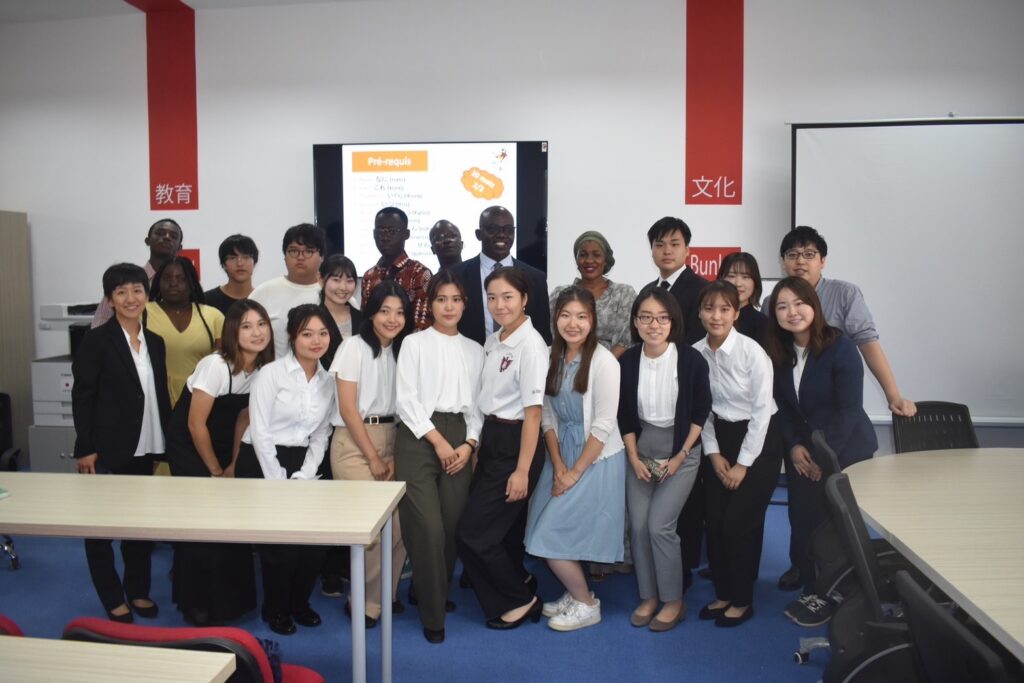
I am now more proactive in enhancing my interest and involvement in Africa, and also in thinking of my future plans. I was able to output some of the knowledge I gained through classroom lectures at university, but it was very exciting to hear the real voices of the people in Africa, which did not meet my expectations in any way. I felt the significance of fieldwork, which goes beyond theoretical theories.
-What advice would you give to someone who is wondering whether or not to study abroad?
I now have a good idea of my career for the next 10 years or so. I am now able to consider my career as an international civil servant which I have been dreaming of since I joined Sophia University as my own personal career. I felt that the experience in the practical experience-based program was very valuable and something that I could only have done through Sophia University. If you wish to advance your own research or do fieldwork in your area of interest, I encourage you to apply for the program even if you are still unsure of whether or not to participate.